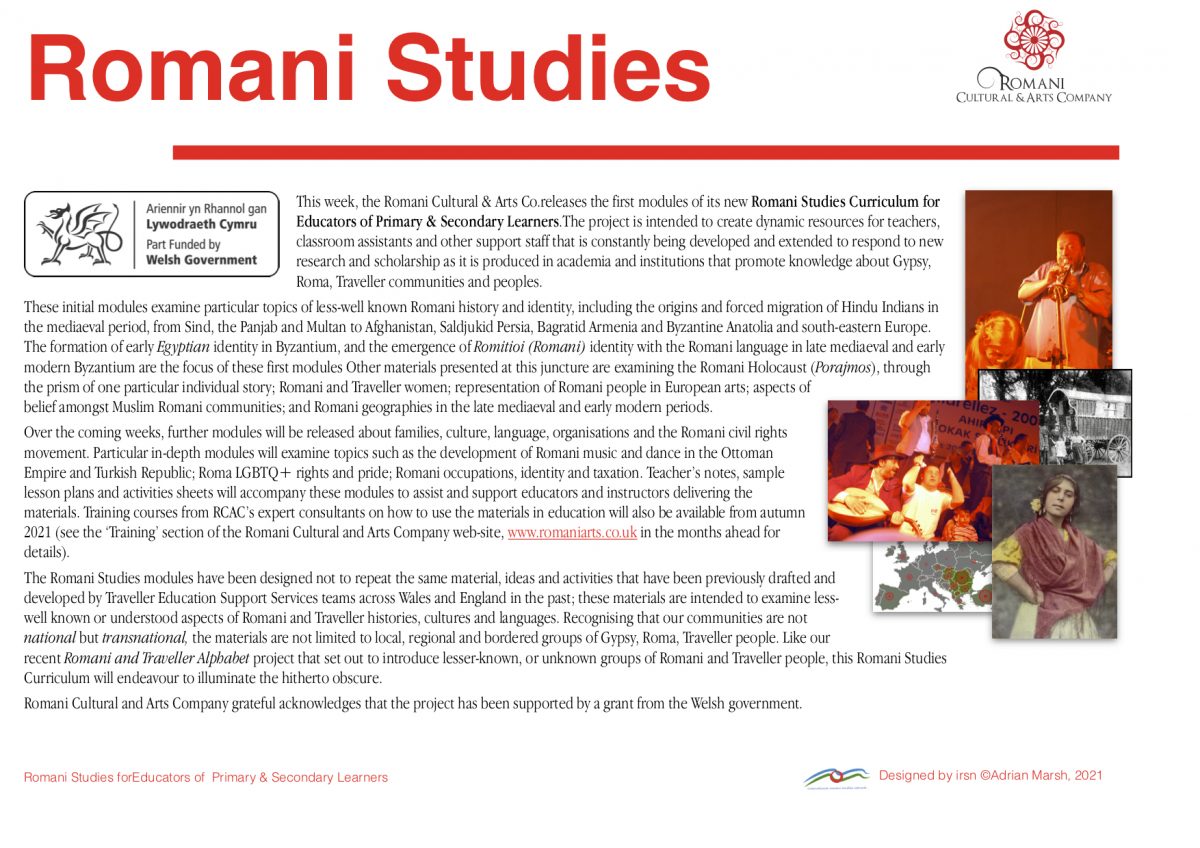This week, the Romani Cultural & Arts Co.releases the first modules of its new Romani Studies Curriculum for Educators of Primary & Secondary Learners. The project is intended to create dynamic resources for teachers, classroom assistants and other support staff that is constantly being developed and extended to respond to new research and scholarship as it is produced in academia and institutions that promote knowledge about Gypsy, Roma, Traveller communities and peoples.
These initial modules examine particular topics of less-well known Romani history and identity, including the origins and forced migration of Hindu Indians in the mediaeval period, from Sind, the Panjab and Multan to Afghanistan, Saldjukid Persia, Bagratid Armenia and Byzantine Anatolia and south-eastern Europe. The formation of early Egyptian identity in Byzantium, and the emergence of Romitioi (Romani) identity with the Romani language in late mediaeval and early modern Byzantium are the focus of these first modules Other materials presented at this juncture are examining the Romani Holocaust (Porajmos), through the prism of one particular individual story; Romani and Traveller women; representation of Romani people in European arts; aspects of belief amongst Muslim Romani communities; and Romani geographies in the late mediaeval and early modern periods.
Over the coming weeks, further modules will be released about families, culture, language, organisations and the Romani civil rights movement. Particular in-depth modules will examine topics such as the development of Romani music and dance in the Ottoman Empire and Turkish Republic; Roma LGBTQ+ rights and pride; Romani occupations, identity and taxation. Teacher’s notes, sample lesson plans and activities sheets will accompany these modules to assist and support educators and instructors delivering the materials. Training courses from RCAC’s expert consultants on how to use the materials in education will also be available from autumn 2021 (see the ‘Training’ section of the Romani Cultural and Arts Company web-site, www.romaniarts.co.uk in the months ahead for details).
The Romani Studies modules have been designed not to repeat the same material, ideas and activities that have been previously drafted and developed by Traveller Education Support Services teams across Wales and England in the past; these materials are intended to examine less-well known or understood aspects of Romani and Traveller histories, cultures and languages. Recognising that our communities are not national but transnational, the materials are not limited to local, regional and bordered groups of Gypsy, Roma, Traveller people. Like our recent Romani and Traveller Alphabet project that set out to introduce lesser-known, or unknown groups of Romani and Traveller people, this Romani Studies Curriculum will endeavour to illuminate the hitherto obscure.
Romani Cultural and Arts Company grateful acknowledges that the project has been supported by a grant from the Welsh government.

